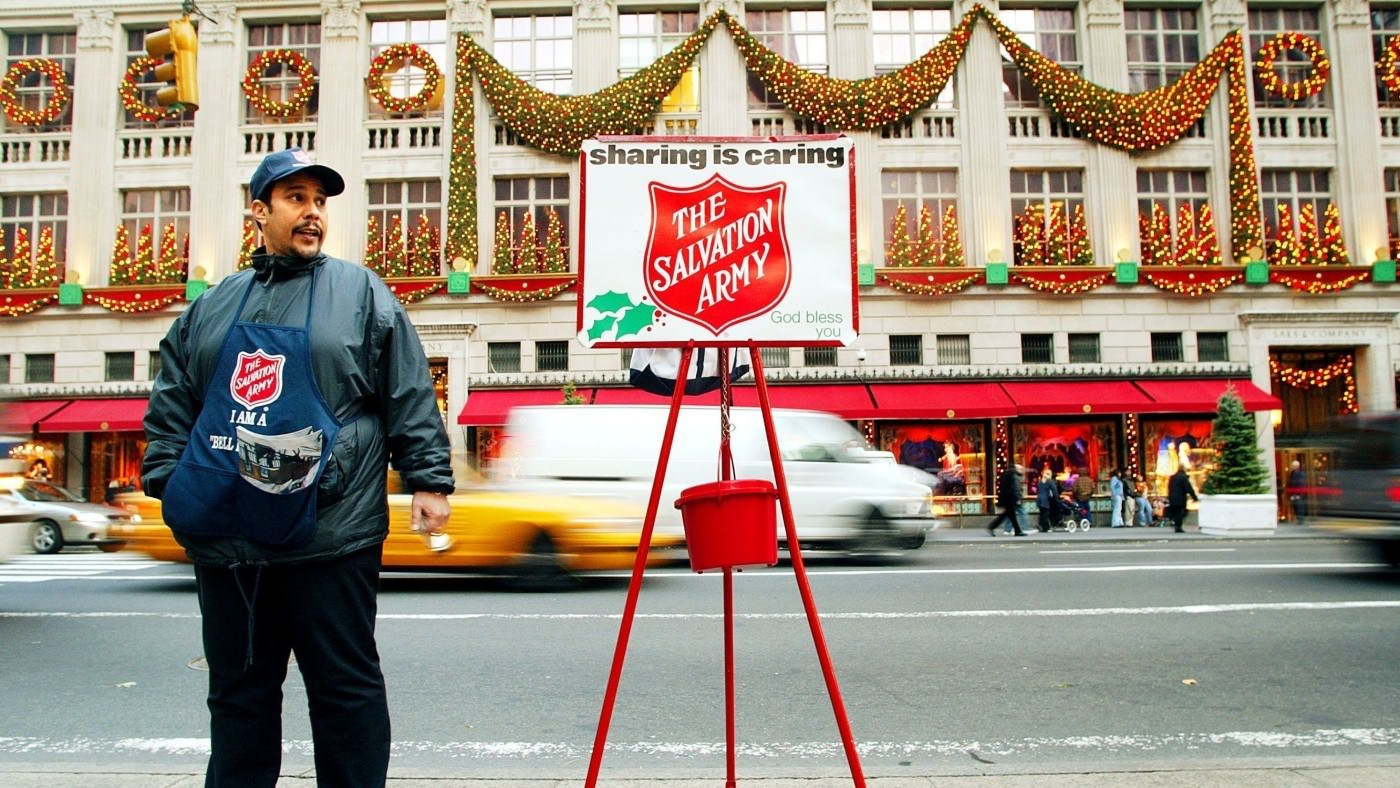Why Anglosphere countries top the World Giving Index

A Salvation Army worker in New York City. Mario Tama / Getty Images
Tweet
- Why Anglosphere countries top the World Giving Index
- Culture is important, but what is so special about the Anglosphere?
- Cultures that prioritize the rights of the individual also engender a strong propensity to help others
Just in time for the holidays, the Charities Aid Foundation released its annual World Giving Index for 2015, ranking countries according to their charitable giving, volunteering, and willingness to help those in need. The report seems to confirm a common source of guilt among developed nations of the world, that the wealthier you become, the less generous you are, with almost no rich countries represented at the top. Instead, the most advanced economies of the world performed relatively poorly, with one glaring exception: the Anglosphere.
In the index, the top spot is occupied by Myanmar, a Southeast Asian military dictatorship that is one of the most impoverished countries in the world. Economic prosperity does not necessarily translate to increasing generosity. In fact, only a handful of wealthy countries made it to the top twenty spots in the World Giving Index of 2015, much less the top ten. But they are not just any handful. The performance of Anglosphere countries is striking: the United States takes second place, while New Zealand, Canada, Australia, the United Kingdom, and Ireland fill out the rest of the top ten. All six countries belong to a unique family of nations formerly associated with a single colonial empire, and all share threads of a common cultural heritage.
From the authors’ discussion of key findings, however, you would never guess that there was such a clear pattern sticking out in the report. They appear to be more preoccupied with pointing out the influence of Theravada Buddhism on the performance of Myanmar, or of the timing of the survey during the month of Ramadan to explain the strong showing of Kazakhstan and Kyrgyzstan. At one point – at last – they begin to explain that the cultural heritage of a country can also impact on giving behaviors, but do not hold your breath. They are only referring to the discontinuation of the Soviet-era weekly volunteering policy of ‘Saturday subbotniks’ in Turkmenistan. It seems that some truths are so obvious, only experts can deny them.
Culture is important, but what is so special about the Anglosphere? It goes without saying that we take much for granted about our culture, and do not always realize what sets us apart. In an article for the Wall Street Journal in 2013, Daniel Hannan wrote about the quirks that foreign visitors have always found surprising about Anglosphere nations, to get a fresh perspective:
“Foreign visitors through the centuries remarked on a number of peculiar characteristics: the profusion of nonstate organizations, clubs, charities and foundations; the cheerful materialism of the population; the strong county institutions, including locally chosen law officers and judges; the easy coexistence of different denominations (religious toleration wasn’t unique to the Anglosphere, but religious equality—that is, freedom for every sect to proselytize—was almost unknown in the rest of the world). They were struck by the weakness, in both law and custom, of the extended family, and by the converse emphasis on individualism. They wondered at the stubborn elevation of private property over raison d’état, of personal freedom over collective need.”
What is most surprising about these characteristics is how paradoxical and unlikely they are. We would not ordinarily expect the most materialistic societies to also be the most generous. We would not expect a legal system that put the rights of the individual above the interests of extended family to also engender a culture with a strong propensity to help those in need. But that is exactly what happened in America and the broader Anglosphere, and it is a mistake to assume that these virtues are the inevitable product of history, or the result of some automatic process of economic development. Instead, they are unique to a particular culture of freedom strongly exhibited by a particular family of nations with a common cultural heritage. That is what we mean when we talk about our exceptionalism, and this holiday season, that is something to ponder.

